The Economist: Trade without trust: How the West should do business with China - No.29 - 18th Jul 20
Tạp chí The Economist là tạp chí uy tín của Anh với lịch sử hơn 176 năm hình thành. The Economist nổi tiếng với văn phong hàn lâm, chuyên sâu về các vấn đề chính trị, kinh tế trên toàn thế giới. Mỗi tuần có hơn 1.7 triệu bản đến tay độc giả trên 200 quốc gia. Hiện ấn bản nhập về Việt Nam là phiên bản cho khu vực Châu Á - Thái Bình Dương.
Lợi thế của The Economist:
+Tạp chí 176 năm hình thành
+Được viết bởi chuyên gia The Economist
+Là tạp chí ưa thích của các doanh nhân hàng đầu thế giới như Bill Gates, Angela Merkel,....
+Có các số liệu, sơ đồ, hình ảnh trực quan trong các bài viết
+Có các bài viết được đưa vào đề thi đọc của IELTS.
+Các bài viết có thể được dẫn nguồn trong luận văn, nghiên cứu với lời văn trau chuốt.
Chi tiết sản phẩm
The Economist: Trade without trust: How the West should do business with China
China v America
Nineteen years ago an unknown Chinese company set up its first European sales offices, in a suburb of Frankfurt and an English commuter town, and started bidding to build telecoms networks. Today Huawei symbolises the daunting rise of China Inc—and a global trading system in which trust has collapsed. With sales of $123bn, it is known for its razor-sharp prices and dedication to the industrial goals of China’s rulers. Since 2018 America has subjected it to a legal assault, making it a flashpoint in the trade war. Now Britain has said that it will block Huawei from its 5g networks (see article). Other European countries may follow. But far from showing the West’s resolve, the saga reveals its lack of a coherent strategy. If open societies and authoritarian China are to keep their economic links and avoid a descent into anarchy, a new trade architecture is needed.
America’s security chiefs have always worried that Huawei’s equipment was designed to aid spying and would make its customers dependent on subsidised Chinese technology. But over 170 other countries decided the risks were manageable. Britain, which works closely with America on intelligence, created a “cell” of cyber-experts to monitor Huawei’s gear in 2010 and, later, confined it to less sensitive parts of the network. Other countries mirrored this approach. It offered a middle way between a naive embrace of Chinese state capitalism and a cold war.
The risks of keeping schools closed far outweigh the benefits
All around the world, children’s minds are going to waste. As covid-19 surged in early April, more than 90% of pupils were shut out of school. Since then the number has fallen by one-third, as many classrooms in Europe and East Asia have reopened. But elsewhere progress is slow. Some American school districts, including Los Angeles and San Diego, plan to offer only remote learning when their new school year begins. Kenya’s government has scrapped the whole year, leaving its children idle until January. In the Philippines President Rodrigo Duterte says he may not let any children return to the classroom until a vaccine is found. South Africa has reopened casinos, but only a fraction of classrooms.
The risks of keeping schools closed far outweigh the benefits
All around the world, children’s minds are going to waste. As covid-19 surged in early April, more than 90% of pupils were shut out of school. Since then the number has fallen by one-third, as many classrooms in Europe and East Asia have reopened. But elsewhere progress is slow. Some American school districts, including Los Angeles and San Diego, plan to offer only remote learning when their new school year begins. Kenya’s government has scrapped the whole year, leaving its children idle until January. In the Philippines President Rodrigo Duterte says he may not let any children return to the classroom until a vaccine is found. South Africa has reopened casinos, but only a fraction of classrooms.
A nasty election in Poland
It was a good week for eastern Europe’s populists. In Poland the nationalist Law and Justice party (pis) fought off a determined challenge for the presidency from the moderate mayor of Warsaw. The ruling party’s favoured candidate clung on partly because Poland’s economy has continued to grow healthily under pis, and because the government has lavished popular cash subsidies on families with children. But there was also a darker reason for President Andrzej Duda’s narrow victory: he stirred up hatred of gay people, Jews and the liberals who supposedly conspire with foreigners to undermine Polish traditions.
Meanwhile Viktor Orban, the populist prime minister of Hungary, looked set to get one over on the bien pensants of Brussels. They wanted to make the disbursement of a €750bn ($857bn) European Union recovery fund conditional on recipient countries abiding by the rule of law. Mr Orban did not like the sound of that, and threatened to veto the whole package. Other European leaders are likely to back down, since their voters care more about economic pain at home than court-nobbling in Hungary.
Check out more at: https://www.economist.com/weeklyedition/2020-07-18
Sign up and contact us for purchase The Economist Weekly magazine:
Ms. Ha: 0915 932 392/ 0933 141 569
E: book.magazine@globalbookcorp.com
The World Ahead 2022 (tên cũ The World In)
295.000 đ790.000 đ
The Economist: Ấn bản đặc biệt The World In 2021
295.000 đ295.000 đ
The Economist: Combo The Economist in 2020
219.000 đ438.000 đ
Combo 2: Các vấn đề về Corona ảnh hưởng đến kinh tế
346.000 đ576.000 đ
Combo 5 cuốn tạp chí giảm 40%: Nhà lãnh đạo tương lai
511.000 đ852.000 đ
The Economist: The Horrible Housing Blunder - No 03 - 18th Jan 20
64.000 đ219.000 đ
The Economist: Next to blow: Britains constitution - No.22.19
64.000 đ219.000 đ
The Economist: Modis Dangerous Moment - No.9.19
64.000 đ219.000 đ
The Economist: How to Contain Iran - No.26.19
184.000 đ219.000 đ
The Economist: The Next Calamity - No.13 - 28th Mar 2020
129.000 đ219.000 đ
The Economist: Closed - No.12 - 21th Mar 2020
109.000 đ219.000 đ
The Economist: The Politics of Pandemics - No 11.20 - 14th Mar, 2020
109.000 đ219.000 đ
The Economist: The Right Medicine For The World Economy - No.10 - 7th Mar 20
109.000 đ219.000 đ
The Economist: It's Going Global - No.09 - 27th Feb 20
109.000 đ219.000 đ
The Economist: Big tech's $2trn bull run - No.08 - 20th Feb 20
109.000 đ219.000 đ
The Economist: A United Ireland - No 07 - 13th Feb 20
109.000 đ219.000 đ
The Economist: Meet the new boss - No 6 - 8th Feb 2020
154.000 đ219.000 đ
The Economist: How bad will it get? - No 05 - 1st Feb 20
109.000 đ219.000 đ
The Economist: Intolerant India - No 04 - 25th Jan 20
154.000 đ219.000 đ
The Economist: Masterstroke or Madness? - No 02 - 11th Jan 20
154.000 đ219.000 đ
The Economist: Poles Apart - No 01 - 4th Jan 20
154.000 đ219.000 đ













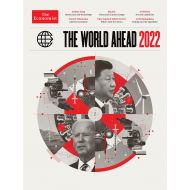
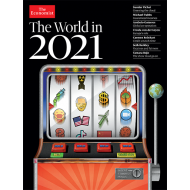
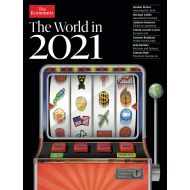

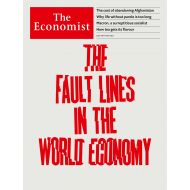

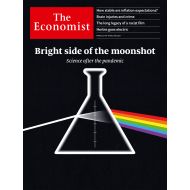

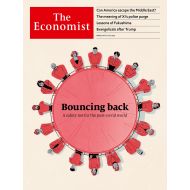
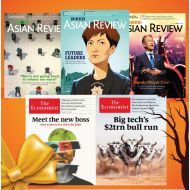

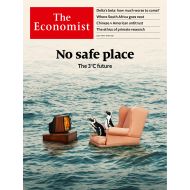



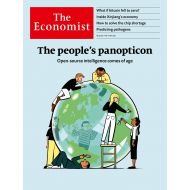

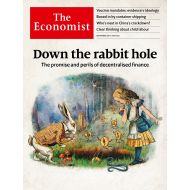

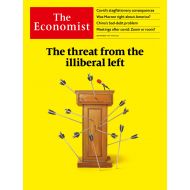
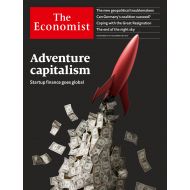


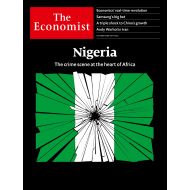
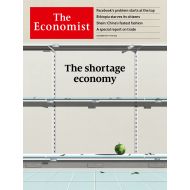
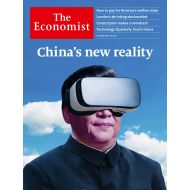

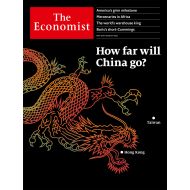








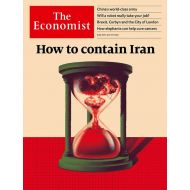




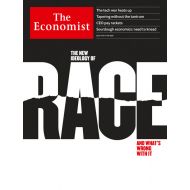




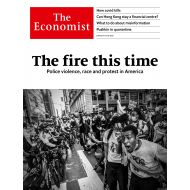







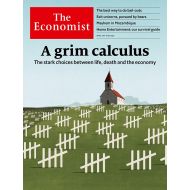














 Gọi điện
Gọi điện SMS
SMS